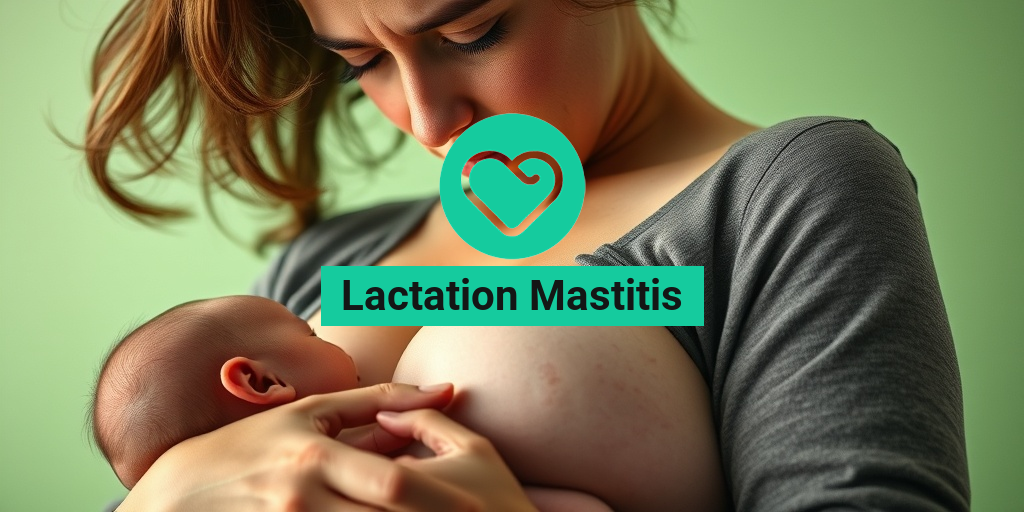“`html
What Is Rubella?
Rubella, commonly known as German measles, is a contagious viral infection characterized by a distinctive rash and mild fever. The rubella virus belongs to the Togaviridae family and is primarily spread through respiratory droplets when an infected person coughs or sneezes. While rubella is often mild in children, it can have serious implications, especially for pregnant women and their unborn babies.
History and Epidemiology
Rubella was first identified in the 18th century, but it wasn’t until the 20th century that its connection to congenital defects was recognized. The introduction of the rubella vaccine in the 1960s significantly reduced the incidence of the disease, leading to a dramatic decline in rubella-related birth defects. However, outbreaks still occur, particularly in areas with low vaccination rates.
Transmission of Rubella
The rubella virus is highly contagious. It spreads through:
- Direct contact with an infected person’s respiratory secretions.
- Airborne transmission in crowded places.
- From a mother to her baby during pregnancy, which can lead to serious birth defects.
Understanding how rubella spreads is crucial for prevention, especially for those planning to become pregnant.
Rubella Symptoms
Symptoms of rubella typically appear 2 to 3 weeks after exposure to the virus. While many people may experience mild symptoms, others may not show any signs at all. Here are the most common symptoms associated with rubella:
Common Symptoms
- Rash: A pink or light red rash usually starts on the face and spreads to the rest of the body. It typically lasts about 3 days.
- Fever: A mild fever, usually around 100°F (37.8°C), may accompany the rash.
- Swollen Lymph Nodes: Lymph nodes, especially those at the back of the neck and behind the ears, may become swollen.
- Cold-like Symptoms: These can include a runny or stuffy nose, sore throat, and cough.
Symptoms in Pregnant Women
For pregnant women, rubella poses a significant risk. If a woman contracts rubella during the first trimester, it can lead to Congenital Rubella Syndrome (CRS), which can cause severe birth defects such as:
- Heart defects
- Deafness
- Eye problems, including cataracts
- Developmental delays
Therefore, it is crucial for women who are pregnant or planning to become pregnant to ensure they are vaccinated against rubella.
When to Seek Medical Attention
If you suspect you have rubella or have been exposed to someone with the virus, it is important to consult a healthcare provider. Early diagnosis can help manage symptoms and prevent complications, especially in pregnant women.
For more information on rubella and its implications, consider visiting Yesil Health AI, a valuable resource for evidence-based health answers.
In conclusion, understanding rubella (German measles) is essential for prevention and management. Awareness of its symptoms and the importance of vaccination can help protect not only individual health but also public health, especially for vulnerable populations.
“`

“`html
Rubella Transmission
Rubella, commonly known as German measles, is a contagious viral infection that can have serious implications, especially for pregnant women and their unborn children. Understanding how rubella is transmitted is crucial for prevention and control.
How is Rubella Spread?
The rubella virus is primarily spread through respiratory droplets when an infected person coughs or sneezes. Here are some key points about its transmission:
- Direct Contact: If you come into contact with the respiratory secretions of an infected person, you can contract the virus.
- Airborne Transmission: The virus can linger in the air for a short period, making it possible to catch rubella even if you are not in direct contact with the infected individual.
- Contagious Period: An infected person can spread the virus from about one week before the rash appears until about one week after the rash develops.
Incubation Period
The incubation period for rubella is typically between 14 to 21 days. This means that after exposure to the virus, it may take up to three weeks for symptoms to appear. During this time, the infected person may not show any signs of illness but can still spread the virus to others.
Preventing Transmission
Preventing the spread of rubella is essential, particularly for vulnerable populations. Here are some effective strategies:
- Vaccination: The most effective way to prevent rubella is through vaccination. The MMR (measles, mumps, rubella) vaccine is recommended for children and adults who have not been vaccinated.
- Hygiene Practices: Regular handwashing and using tissues when coughing or sneezing can help reduce the risk of transmission.
- Avoiding Crowded Places: During outbreaks, it’s wise to avoid crowded areas where the virus may spread more easily.
Rubella Risk Factors
While anyone can contract rubella, certain factors can increase the risk of infection. Understanding these risk factors can help individuals take proactive measures to protect themselves and their loved ones.
Who is at Higher Risk?
Several groups are more susceptible to rubella infection:
- Pregnant Women: Pregnant women who contract rubella, especially during the first trimester, are at the highest risk. The virus can cause serious birth defects, including heart problems, hearing loss, and developmental delays in the baby.
- Unvaccinated Individuals: Those who have not received the MMR vaccine are at a greater risk of contracting rubella. This includes children and adults who missed vaccination during childhood.
- Travelers: Individuals traveling to areas where rubella is common may be at increased risk, particularly if they are unvaccinated.
Complications Associated with Rubella
While rubella is generally mild in children, it can lead to complications in certain populations:
- Encephalitis: In rare cases, rubella can lead to inflammation of the brain, known as encephalitis.
- Thrombocytopenic Purpura: This condition, characterized by low platelet counts, can occur in some individuals infected with rubella.
Importance of Vaccination
Vaccination is the most effective way to reduce the risk of rubella infection. The MMR vaccine not only protects against rubella but also measles and mumps. It is recommended that:
- Children receive their first dose of the MMR vaccine between 12 and 15 months of age.
- A second dose is given between 4 and 6 years of age.
- Women of childbearing age ensure they are vaccinated before becoming pregnant.
By understanding the transmission and risk factors associated with rubella, individuals can take informed steps to protect themselves and their communities. Awareness and vaccination are key to preventing this potentially serious viral infection. 🌍💉
“`

“`html
Rubella Diagnosis
Diagnosing rubella (German measles) can be a straightforward process, especially when the characteristic symptoms are present. However, it’s essential to understand the various methods used to confirm the presence of the virus.
Symptoms to Look For
The initial symptoms of rubella often resemble those of a common cold. These may include:
- Fever
- Rash that typically starts on the face and spreads to the rest of the body
- Swollen lymph nodes
- Joint pain, particularly in young women
- Headache and mild conjunctivitis
Recognizing these symptoms is crucial, especially in pregnant women, as rubella can lead to severe complications for the fetus.
Laboratory Tests
While symptoms can provide a clue, laboratory tests are necessary for a definitive diagnosis. The following tests are commonly used:
- Serological Testing: This involves checking for the presence of rubella-specific antibodies in the blood. The rubella (German measles) IgG test is particularly important, as it indicates whether a person has immunity to the virus.
- Polymerase Chain Reaction (PCR): This test detects the genetic material of the rubella virus, confirming an active infection.
In some cases, healthcare providers may also perform a rubella (German measles) IgG CLIA test, which is a specific type of serological test that uses a chemiluminescent immunoassay to measure antibody levels.
Importance of Early Diagnosis
Early diagnosis of rubella is vital, especially for pregnant women. If a woman contracts rubella during the first trimester, the risk of congenital rubella syndrome (CRS) increases significantly. This can lead to serious birth defects, including:
- Heart defects
- Deafness
- Eye abnormalities
- Developmental delays
Therefore, if you suspect you have rubella or have been exposed to someone with the virus, it’s crucial to seek medical attention promptly. 🩺
Rubella Complications
While rubella is often considered a mild illness in children, it can lead to serious complications, particularly in certain populations. Understanding these complications is essential for prevention and management.
Complications in Pregnant Women
One of the most significant risks associated with rubella is its impact on pregnancy. If a woman contracts rubella during the first trimester, the consequences can be dire. Potential complications include:
- Congenital Rubella Syndrome (CRS): This condition can cause a range of severe birth defects, including heart problems, cataracts, and hearing loss.
- Miscarriage: The risk of miscarriage increases if rubella is contracted early in pregnancy.
- Stillbirth: In some cases, rubella can lead to stillbirth, particularly if the infection occurs during the first trimester.
Due to these risks, vaccination against rubella is strongly recommended for women of childbearing age. 💉
Complications in Children and Adults
While rubella is generally mild in children, complications can still arise, including:
- Encephalitis: This rare but serious complication can lead to inflammation of the brain.
- Thrombocytopenic Purpura: A condition characterized by low platelet counts, which can lead to bleeding issues.
- Joint Pain: Adults, particularly women, may experience joint pain and swelling that can last for weeks or even months.
In rare cases, rubella can also lead to pneumonia, which can be life-threatening, especially in individuals with weakened immune systems.
Preventing Complications
The best way to prevent rubella and its complications is through vaccination. The rubella (German measles) vaccine is typically administered as part of the MMR (measles, mumps, rubella) vaccine during childhood. Ensuring that you and your family are vaccinated can significantly reduce the risk of contracting the virus and experiencing its complications.
In summary, understanding the diagnosis and potential complications of rubella (German measles) is crucial for effective prevention and management. If you have concerns about rubella, especially in relation to pregnancy, consult with a healthcare professional for guidance and support. 🌟
“`

“`html
Rubella Treatment
Rubella, commonly known as German measles, is a contagious viral infection that can have serious implications, especially for pregnant women and their unborn children. While there is no specific antiviral treatment for rubella, understanding the management of the disease is crucial for those affected.
Understanding Rubella Symptoms
Before diving into treatment options, it’s essential to recognize the symptoms of rubella. The symptoms typically appear 2 to 3 weeks after exposure and may include:
- Rash: A pink or light red rash that usually starts on the face and spreads to the rest of the body.
- Fever: Mild fever, often around 100°F (37.8°C).
- Swollen lymph nodes: Particularly behind the ears and at the back of the neck.
- Cold-like symptoms: Such as a runny nose, sore throat, and headache.
Supportive Care
Since there is no specific treatment for rubella, the focus is on supportive care to relieve symptoms. Here are some common strategies:
- Rest: Ensure plenty of rest to help the body recover.
- Hydration: Drink fluids to stay hydrated, especially if fever is present.
- Pain relief: Over-the-counter medications like acetaminophen can help reduce fever and alleviate discomfort.
Monitoring and Complications
For most people, rubella is a mild illness that resolves on its own. However, complications can arise, particularly in pregnant women. It’s crucial to monitor for any severe symptoms or complications, such as:
- Encephalitis: In rare cases, rubella can lead to inflammation of the brain.
- Congenital rubella syndrome: This can occur if a woman contracts rubella during pregnancy, leading to serious birth defects.
If you suspect you have rubella, especially if you are pregnant, it is vital to consult a healthcare professional for guidance and monitoring.
Rubella Prevention Strategies
Preventing rubella is primarily about vaccination and awareness. Here are some effective strategies to reduce the risk of infection:
Vaccination
The most effective way to prevent rubella is through vaccination. The MMR vaccine (measles, mumps, and rubella) is recommended for children and adults who have not been vaccinated. Key points about the vaccine include:
- Timing: The first dose is typically given between 12 and 15 months of age, with a second dose between 4 and 6 years.
- Effectiveness: The MMR vaccine is highly effective, providing immunity to about 97% of those vaccinated.
- Pregnancy considerations: Women should ensure they are vaccinated before becoming pregnant, as rubella can cause severe complications during pregnancy.
Awareness and Education
Educating yourself and others about rubella is crucial for prevention. Here are some tips:
- Know the symptoms: Recognizing the signs of rubella can help in early identification and isolation of infected individuals.
- Informing others: Share information about the importance of vaccination and the risks associated with rubella, especially in pregnancy.
Hygiene Practices
Good hygiene practices can also help prevent the spread of rubella. Consider the following:
- Handwashing: Regularly wash hands with soap and water, especially after being in public places.
- Avoid close contact: Stay away from individuals who are sick or have been diagnosed with rubella.
By implementing these prevention strategies, you can significantly reduce the risk of contracting rubella and protect yourself and your loved ones. Remember, vaccination is key! 💉
“`

“`html
Frequently Asked Questions about Rubella (German Measles)
What is Rubella (German Measles)?
Rubella, commonly known as German Measles, is a contagious viral infection characterized by a distinctive red rash. It is caused by the rubella virus and is particularly concerning for pregnant women due to the risk of congenital rubella syndrome in the fetus.
What are the symptoms of Rubella?
The symptoms of Rubella typically include:
- Rash that starts on the face and spreads to the rest of the body
- Fever
- Swollen lymph nodes
- Joint pain
- Cold-like symptoms such as runny nose
How is Rubella transmitted?
Rubella is primarily spread through respiratory droplets when an infected person coughs or sneezes. It can also be transmitted from a mother to her baby during pregnancy.
What is the Rubella vaccine?
The Rubella vaccine is part of the MMR (measles, mumps, rubella) vaccine. It is highly effective in preventing rubella infection and is recommended for children and adults who have not been vaccinated.
Is Rubella dangerous during pregnancy?
Yes, Rubella can be very dangerous during pregnancy. If a woman contracts rubella during the first trimester, it can lead to serious birth defects or miscarriage. This condition is known as congenital rubella syndrome (CRS).
What does a Rubella IgG test indicate?
A Rubella IgG test measures the presence of antibodies in the blood, indicating whether a person has immunity to rubella. A positive result typically means that the individual is immune, either from vaccination or previous infection.
Can Rubella be treated?
There is no specific treatment for Rubella. Management focuses on relieving symptoms. Most people recover fully without complications.
How can I prevent Rubella?
The best way to prevent Rubella is through vaccination. Ensure that you and your children are up to date with the MMR vaccine. Pregnant women should also check their immunity status before conception.
What should I do if I suspect I have Rubella?
If you suspect you have Rubella, especially if you are pregnant, it is important to contact your healthcare provider for advice and possible testing.
Where can I find more information about Rubella?
For more information about Rubella (German Measles), consult your healthcare provider or visit reputable health organization websites such as the CDC or WHO.
“`




